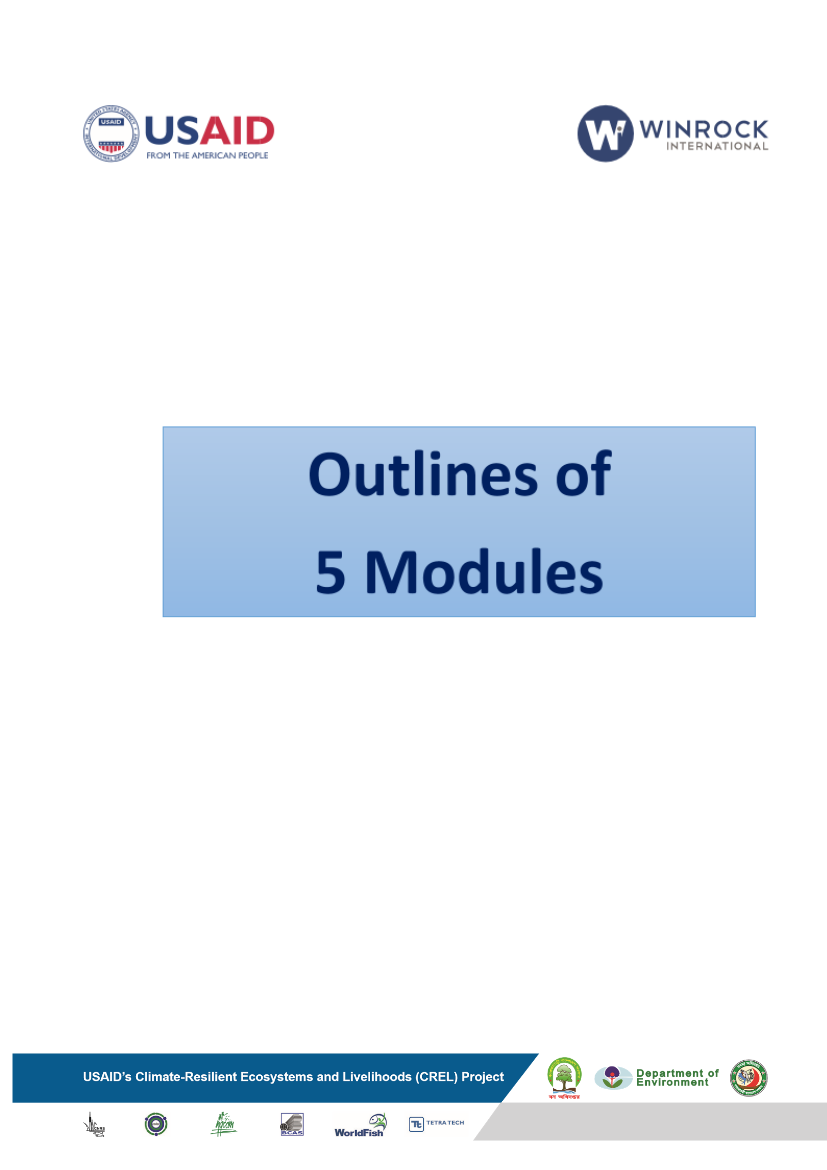Speeches Shim
The five university-level curricula contained within this resource respond to the expressed needs of Bangladesh universities, natural resources management experts and other practitioners to ensure that tomorrow’s professionals are better prepared to take on the challenges of conserving Bangladesh’s rich and diverse natural resources. The challenge is daunting. Bangladesh’s protected forest and aquatic landscapes are under constant threat and pressure from those who profit from short-term term gain, poor policy implementation and a lack of adequate information and management capacities ….. at the expense of the destruction of the country’s important yet fragile natural resources: forest land area and quality is declining, wetlands and associated biodiversity are shrinking, marine and riverine ecosystems are being vastly over exploited and toxic pollution from industry, urban environments and agriculture is widespread and growing. The poor living adjacent to these protected environments are dependent on ever-dwindling and depleted natural resources for their livelihoods. The effects of climate change exacerbate this situation as does an expanding population, increasing market pressures, political constraints and insufficient expertise to implement solutions that are scientifically sound and socially viable.
The USAID Climate Resilient Ecosystems and Livelihoods (CREL) Project brings together women and men from resource-dependent households in targeted landscapes, civil society groups, and the Government of Bangladesh to collectively conserve, protect and manage forests, wetlands and critical ecosystems. This engagement at multiple levels – from people at the grassroots to key decision-makers at the policy level – is underpinned by targeted initiatives that support policy reforms, institutional strengthening, alternative livelihoods that provide incomes for poor and vulnerable people and monitoring of biodiversity, forest carbon and landscape-level planning. CREL has adopted and refined successful co-management models that increase the ability of resource management institutions to foster environmental stewardship and biodiversity conservation in Protected Areas, wetlands and ecologically critical areas in Sylhet, Chittagong, Cox’s Bazar and Khulna Regions.
CREL engaged professionals to develop five high quality curricula and teaching materials on Climate Change, REDD+, Forest Carbon Measurement and Monitoring, Climate-Resilient Ecosystem Conservation and Co-management of Natural Resources. It is expected that these will be used to update current courses or form the basis of new courses at public and private universities and professional training centers that are involved in developing the capacities of leaders to make positive contributions to natural resources management in Bangladesh. The curriculum teaching materials is a free resource of for university professors, teachers and climate change experts. Reproduction of CREL’s curriculum materials for educational or other non-commercial purposes is authorized without prior written permission from the copyright holder, provided the source is fully acknowledged.
Suggested citation: USAID. 2016. Bangladesh Climate-Resilient Ecosystem Curriculum (BACUM). USAID‘s Climate-Resilient Ecosystems and Livelihoods (CREL) Project. Winrock International. Dhaka, Bangladesh.
Disclaimer: The CREL’s curriculum is made possible by the support of the American People through the United States Agency for International Development (USAID). The contents of the curriculum do not necessarily reflect the views of USAID or the US Government
Links to the 5 Modules:
Module 3 – Forest Carbon Measurement



Comment
Make a general inquiry or suggest an improvement.